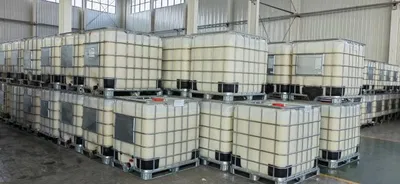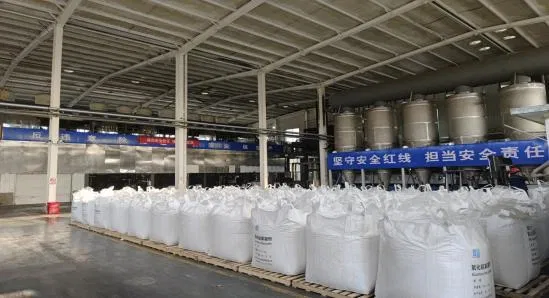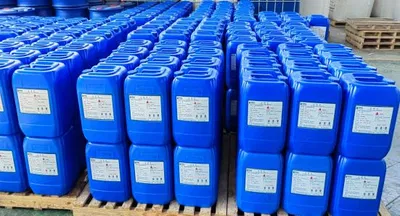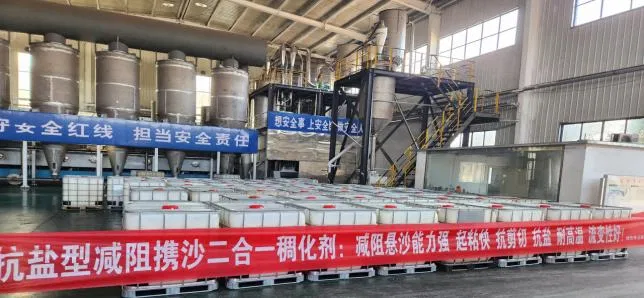Drilling Fluid Thickener – CH100 Salt-Resistant Friction Reduction and Proppant-Carrying Dual-Function Emulsion
The CH100 Salt-Resistant Friction Reduction and Proppant-Carrying Dual-Function Fracturing Emulsion is an additive designed for high-temperature and high-salinity environments.
- Envío:
Saber más
Drilling Fluid Thickener – CH100 Salt-Resistant Friction Reduction and Proppant-Carrying Dual-Function Emulsion
 The CH100 Salt-Resistant Friction Reduction and Proppant-Carrying Dual-Function Fracturing Emulsion is an additive designed for high-temperature and high-salinity environments. Its core features and functions are as follows:
The CH100 Salt-Resistant Friction Reduction and Proppant-Carrying Dual-Function Fracturing Emulsion is an additive designed for high-temperature and high-salinity environments. Its core features and functions are as follows:
Enhanced Salt Resistance
By incorporating salt-insensitive sulfonic acid groups and hydrophobic groups, the product significantly improves viscosity retention (≥70%) in high-salinity brines and wastewater [1]. Compared to traditional carboxylic acid-based thickeners, this design effectively avoids viscosity loss in aqueous solutions caused by salt sensitivity, making it suitable for complex formation environments [1,4].
Integrated Friction Reduction and Proppant Transport
Leveraging the long-chain polymer structure of slickwater friction reducers, the emulsion suppresses lateral flow by altering fluid-wall interactions to reduce friction, while enhancing axial flow via viscoelasticity to meet high-rate pumping requirements [4]. Its viscoelastic properties also enable effective proppant suspension, ensuring fracture propagation and uniform sand distribution [4,8].
Temperature Tolerance and Compatibility
Based on a strongly inhibitive compound brine-based fluid design, the CH100 emulsion maintains stable rheological properties at high temperatures (e.g., 90°C) and exhibits good compatibility with common additives such as corrosion inhibitors and swelling inhibitors [3,4].

Environmental and Cost Advantages
Utilizing non-solid-phase weighting technology and eco-friendly materials, it reduces drilling fluid processing complexity and generates general solid waste, aligning with green development standards [3]. The emulsion form facilitates on-site mixing, lowering transportation and storage costs while improving operational efficiency [7,8].
Applications
Primarily used in unconventional reservoir development (e.g., shale oil/gas), it is ideal for fracturing operations under high-temperature, high-salinity, and complex downhole conditions. This system can replace traditional emulsion fracturing fluids to achieve cost reduction and efficiency enhancement [1,4].
Main Components
CH100 Salt-Resistant Friction Reduction and Proppant-Carrying Dual-Function Fracturing Emulsion
The core components of CH100 are designed for high-temperature, high-salinity, and complex operational conditions. Key functional components include:

1. Backbone Polymer Groups
Acrylamide Copolymers: Serve as the foundational thickener skeleton, providing thickening and proppant-carrying capabilities via long-chain polymer structures [4,8].
Sulfonic Acid Groups (e.g., AMPS): Replace traditional carboxylic acid groups to enhance salt resistance and prevent viscosity loss in high-salinity environments [1,3].
Hydrophobic Monomers: Improve temperature resistance and shear stability through hydrophobic associations, adapting to high-temperature formations [1,3].
2. Functional Additives
Salt-Resistant Monomers: Specific monomers (e.g., fluorinated acrylates or tetrafluoroethylene) are introduced via copolymerization to further strengthen salt tolerance [3,4].
Mineral Oil Emulsion Carrier: Acts as a dispersion medium for the emulsion form, ensuring uniform polymer distribution and facilitating on-site mixing [3,8].
3. Auxiliary Components
Emulsifiers and Stabilizers: Maintain emulsion stability and prevent phase separation or sedimentation (e.g., mineral oil-based thickeners and anti-settling agents) [3,7].
Eco-Friendly Materials: Incorporate biodegradable or low-toxicity raw materials (e.g., biodegradable polymers) to reduce environmental impact [3,7].
4. Synergistic Enhancement Components
Dynamic Reversible Crosslinking Groups: Some formulations may include borate or silicon-based functional groups to enhance high-temperature rheological performance and enable self-breaking properties via dynamic chemical bonds [3].

Technical Parameters
Item | Technical information | Nos. | |
1 | Appearance | White or off-white emulsion | |
2 | pH | 6.0–8.0 | |
3 | Solid Content (%) | ≥35 | |
4 | Base Viscosity (170 s⁻¹) | ≤600 mPa·s | |
5 | Stability | No significant stratification | |
6 | Residue Content (0.1%), mg/L | ≤50 | |
7 | Dissolution Time (s) | ≤40 | |
8 | Apparent viscosity(170s’) Mpa.s | - Tap water, 1% oncentration | ≧80 |
9 | 10% simulated brine,1.5% concentration度 | ≧60 | |
- 0.5% KCl brine, 1% concentration | ≧60 | ||
10 | drag reduction rate(0.1%浓度)% | Tap water | >70 |
11 | 0.5% KCl solution (0.1% concentration) | <65 | |
12 | Friction Reduction Variation Rate | <4 | |